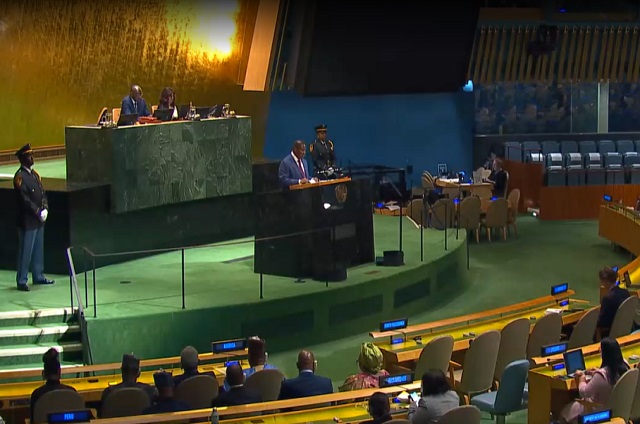Coalition of Global South leaders escalates international campaign for reparations, proposing formal UN mechanisms
Western nations came under sharp criticism at the 80th session of the United Nations General Assembly as leaders from the Global South renewed pressure for reparative justice over the transatlantic slave trade and colonialism.
The session was marked by a historic and coordinated demand for accountability, with African leaders making it clear that silence on historical crimes was no longer acceptable.
Ghana’s President John Dramani Mahama, in his capacity as the African Union Champion for Reparations, set the tone with a forceful address that placed the moral weight of history squarely on the global stage.
Describing the slave trade as “the greatest crime against humanity,” Mahama underscored the magnitude of its impact, citing the forced displacement of more than 12.5 million Africans whose labour and suffering generated enormous wealth for Western nations.
“We must demand reparations for the enslavement of our people and the colonisation of our land that resulted in the theft of natural resources,” President Mahama stated, and highlighted the historical irony that Western governments “happily paid reparations to former slave owners as compensation for the loss of their ‘property’, the enslaved people themselves.”
“We recognise the value of our land and the value of our lives,” he declared.
Central African Republic President Faustin Archange Touadera reinforced the continental solidarity behind reparations, declaring that “the era of Africa’s dependence is over,” and called for a fundamental shift toward “sovereignty, not subordination; partnership, not exploitation.”
President Touadera condemned the persistent global inequality, stating it is “unacceptable to see poverty worsening in Africa while wealth accumulates in the Northern countries,” while confirming his nation’s full support for the pan-African reparations initiative.
Bolivian President Luis Alberto Arce Catacora outlined specific mechanisms for addressing historical injustices, proposing the establishment of a dedicated UN commission on reparations covering “slavery, apartheid, genocide, and colonialism.”
“This commission must establish effective mechanisms to restore historical justice,” President Arce explained, detailing three core components: Financial reparations, Environmental restoration and Restitution of stolen cultural property.
He called for those responsible for historical crimes to contribute “billions of dollars into a reparations fund” and urged unity between the African Union and CELAC (Community of Latin American and Caribbean States) in confronting colonialism’s lasting effects.
A consistent theme across all presentations was profound disappointment with the Global North’s engagement on reparative justice.
Leaders expressed unanimous frustration that Western countries continue to avoid meaningful dialogue on the issue, demonstrating what they characterized as a deliberate unwillingness to acknowledge historical responsibilities.
This coordinated stance at the UN General Assembly represents a significant escalation in the international reparations movement, signalling that former colonial powers can no longer sideline these demands on the global stage.

